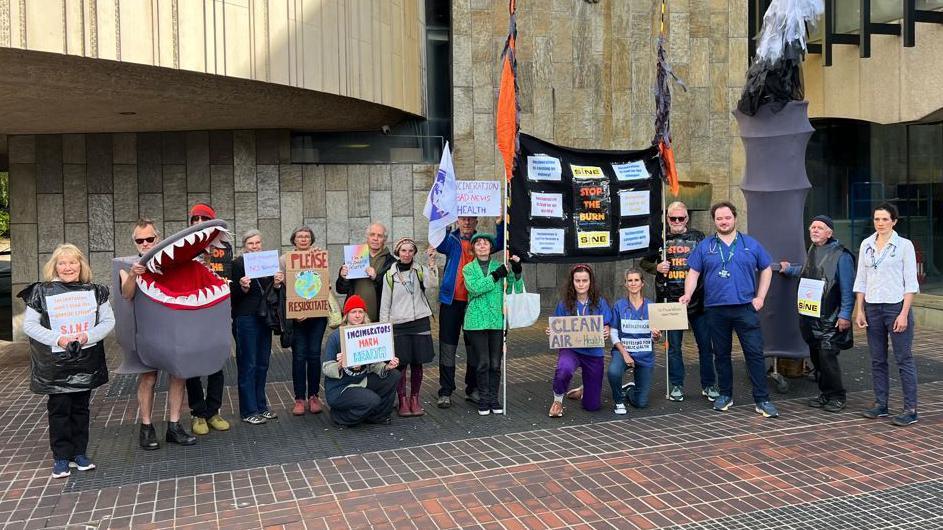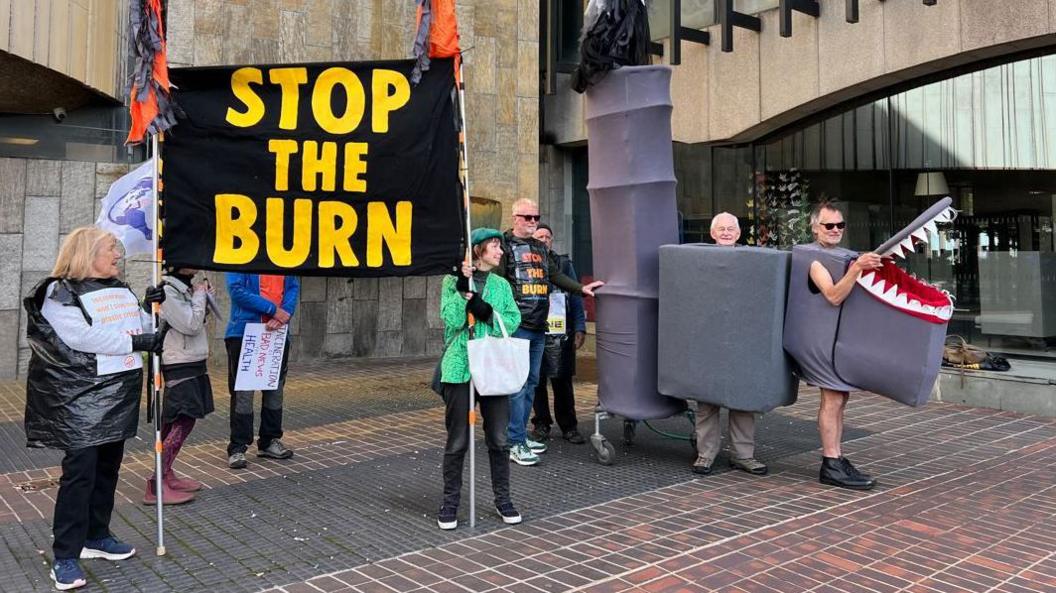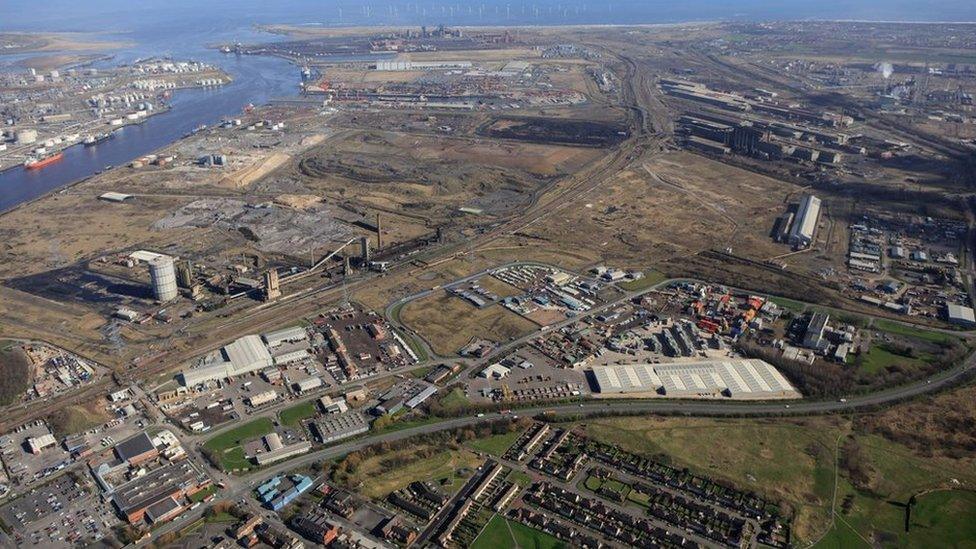Incinerator plan sparks health fears protest

Protestors are calling for investment in waste reduction, re-use and recycling rather than incinerators
- Published
A group of health professionals has held a protest against a planned waste incinerator on Teesside.
It took place at Newcastle Civic Centre, as the local authority is one of seven that would use the proposed Tees Valley Energy Recovery Facility at Redcar.
The protestors are concerned about the environmental and health implications for an area already heavily affected by air pollution.
The councils say the incinerator, which would burn up to half a million tonnes of waste otherwise destined for landfill, is essential and would be safe and sustainable.
The facility would take waste from 1.5 million homes in the Newcastle, Durham, Darlington, Hartlepool, Middlesbrough, Stockton and Redcar and Cleveland council areas.
'Overburdened by pollution'
The protest follows an open letter sent to Newcastle City Council from health professionals urging the authority to withdraw support for the scheme.
They warned the incinerator would release air pollutants and greenhouse gas emissions which have multiple negative health impacts, especially in an area which already faces "significant public health challenges".
Instead, they called for investment in waste reduction, re-use and recycling, which they say would create far more jobs than incineration.
Dr Matthew Keegan, one of the signatories, added: “This project will result in waste from across the whole region getting dumped on an area that has already been overburdened by pollution, inequality and government neglect.
"As a doctor living and working in the North East, I’m not going to stand by as more and more incinerators get built across Teesside and my council tax and my waste are used to feed this harm.”

There is concern the incinerator would release harmful air pollutants
The authority responded with a joint statement from all seven councils which said: "Energy-from-Waste (EfW) facilities are widely in use across the UK and are a proven, safe and reliable solution to treat waste.
"They are subject to intense regulatory scrutiny through both the permitting process and on an ongoing basis once operational.
"As such, the partner authorities remain of the view that the TV ERF remains the safest and best environmental solution for the treatment of local waste left over after recycling.”
Follow BBC Tees on X,, external Facebook, external, Nextdoor and Instagram, external. Send your story ideas to northeastandcumbria@bbc.co.uk.
- Published24 July 2020
